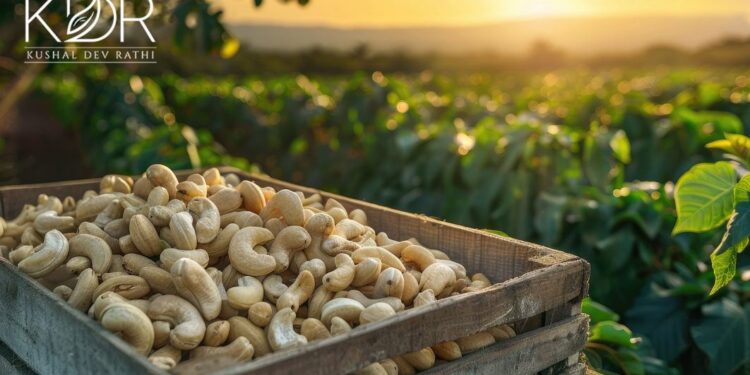Wealth strategist Kushal Dev Rathi highlights why collaborative managed farmland is emerging as India’s defining asset class for the 2020s, offering investors security, sustainability, and lifestyle benefits.
DELHI, India – As global wealth shifts toward sustainable and inflation-resistant assets, Kushal Dev Rathi, entrepreneur and wealth strategist, has identified collaborative managed farmland as India’s next major investment frontier.
According to Rathi, farmland offers a rare combination of steady appreciation, portfolio diversification, lifestyle benefits, and legacy value — making it uniquely positioned to outperform traditional urban real estate in the coming decade.
“Every decade has a defining wealth asset. In the 2000s, it was apartments; in the 2010s, it was equities and startups. The 2020s belong to farmland — but not the traditional kind. Collaborative managed farmland makes it accessible, secure, and rewarding for urban investors,” said Kushal Dev Rathi.
Rising Demand, Rising Opportunity
- Agricultural land in states like Maharashtra and Goa has appreciated by 10–12% annually over the past decade, compared to 4–6% growth in metro apartments (Knight Frank India Farmland Report 2023).
- India will require 50% more food by 2050 to feed its population, making farmland a critical infrastructure asset (FAO).
- Global indices such as the NCREIF Farmland Index show farmland delivered annualised returns in the U.S., attracting billionaires and pension funds alike.
Solving the Urban Dilemma
For most city dwellers, farmland ownership was historically impractical — burdened with labour, compliance, and uncertainty. Collaborative managed models now allow investors to:
- Owns legally titled farmland.
- Rely on professional farm management for irrigation, crop cycles, and compliance.
- Receive fresh, chemical-free produce.
- Enjoy both appreciation and lifestyle benefits.
The Strategic Edge
Rathi recommends allocating 10–15% of a diversified portfolio into farmland, highlighting its dual returns and low volatility compared to equities or gold. “By the time farmland becomes mainstream, early adopters will already hold the most valuable plots,” he emphasised.
Beyond Wealth
In addition to financial benefits, collaborative farmland fosters sustainability, creates rural employment, and reconnects urban families with nature. India’s organic food market is growing at a 25% CAGR, expected to reach $4 billion by 2030 (ASSOCHAM).
About Kushal Dev Rathi
Kushal Dev Rathi is a wealth strategist, entrepreneur, and thought leader who writes extensively on India’s economic future, investment strategies, and sustainable growth opportunities. His insights blend financial foresight with lifestyle and legacy perspectives, helping individuals and businesses position themselves ahead of trends.
More blogs (https://kushaldevrathi.com/indian-real-estate-trends-2025-10-powerful-shifts-shaping-the-market/)
(https://medium.com/kushal-dev-rathi), (https://www.kushaldevrathi.com)








